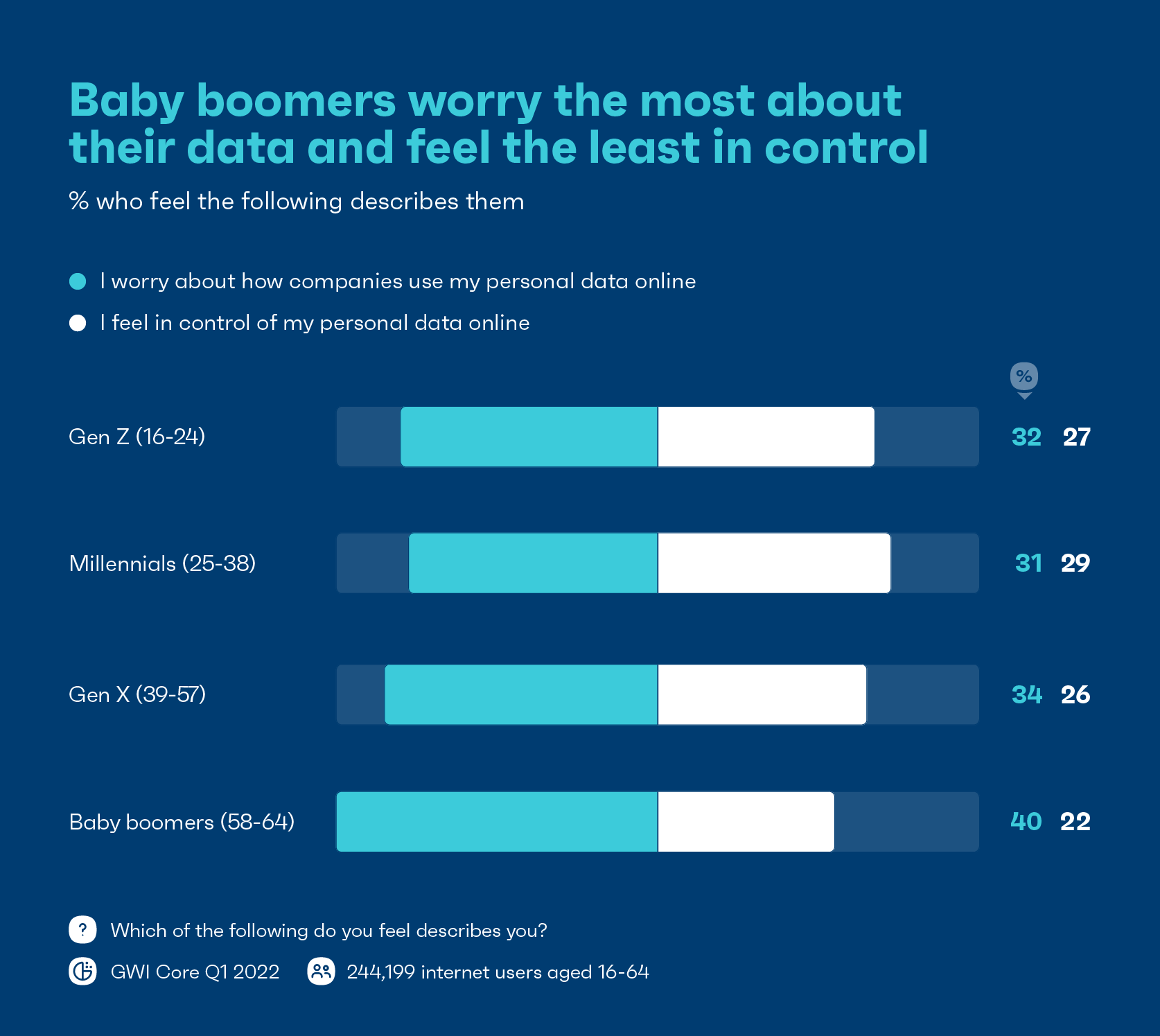Third party tracking cookies are quickly falling out of favor, with Firefox’s 2019 discontinuation of certain tracking cookies coupled with Apple’s widespread blocking of all third party tracking playing a role in that. Google is also planning to discontinue the use of third party tracking cookies by 2023, but what does the consumer think about all this? The Global Web Index recently published some data that sheds some light on this situation.
There are five basic trends that this report, with the first of these trends being that privacy desires have remained quite consistent over time. With all of that having been said and now out of the way, it is important to note that older consumers tend to be more focused on privacy than those that belong to the younger demographics. Only 22% of Baby Boomers said that they felt like they had control over their online data, but 27% of Gen Z respondents said the same with all things having been considered and taken into account.
Another trend that can be seen in this report is that quite a few consumers are opting for privacy oriented alternatives to their favorite products. Many of these consumers are switching to DuckDuckGo because of the fact that this is the sort of thing that could potentially end up allowing them to use a search engine that would automatically block any tracking attempts from third parties. DuckDuckGo has seen its US based usership increase by as much as 69% since the second quarter of 2020.
Also, while privacy behaviors are consistent across most demographics, the reasons for implementing a particular privacy conscious methodology can vary based on the demographic that the consumer in question belongs to. For example, baby boomers use ad blockers due to the lack of representation that they see in ads that are shown to them. Gen Z, on the other hand, is more likely to use ad blockers so that they can avoid seeing any kind of inappropriate content online. Hence, the reasoning for each demographic differs based on a few pertinent factors.
As for the reactions that people show to cookie consent prompts, there are three basic reactions that have emerged based on the trends included in this report. Around half of the users across 9 markets stated that they automatically accept any cookies that a website asks consent for. In spite of the fact that this is the case, around one third of respondents stated that they change the settings to better suit their preferences, and approximately 6% get turned off by the prompt and decide to abandon their visit to that particular website.
The three biggest reasons for disliking these pop-ups, each of which were selected by 26% of respondents, were as follows: reduction of online experience enjoyment, difficulty in making the right choice and an overabundance of information included in these popups. Unclear information or the presence of excessive jargon was also included as a major reason by a quarter of respondents or 25% to be precise.
By far the biggest trend that can be analyzed through this data set is that transparency has started to matter more than ever before. 46% of respondents in the US stated that they wanted to know more about why their data was being asked for as well as what would be done with the data once they consent to a website using it. This indicates that a lot more consumers would be willing to consent to first party tracking if a bit more transparency is given to them about such matters
All of these factors need to be recognized by websites and brands, especially now that third party tracking is fast becoming a thing of the past.
Read next: 45% of Consumers Downsized Their Lifestyles Due to Inflation
by Zia Muhammad via Digital Information World


No comments:
Post a Comment